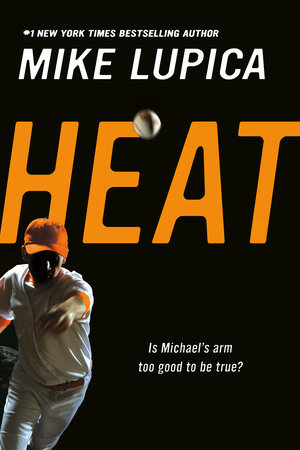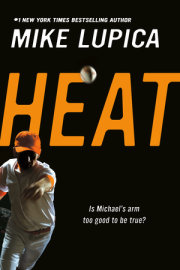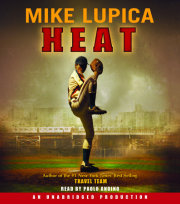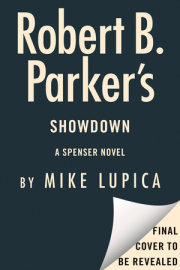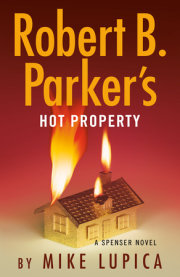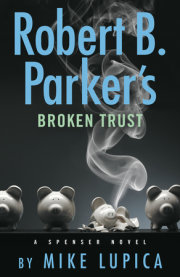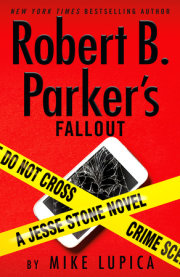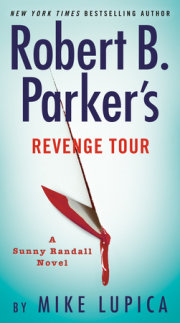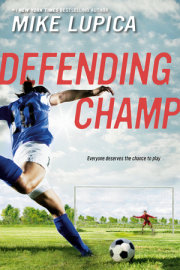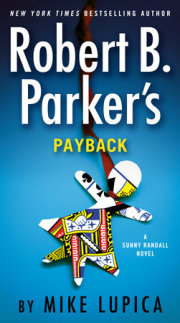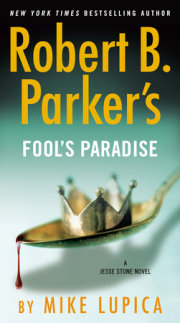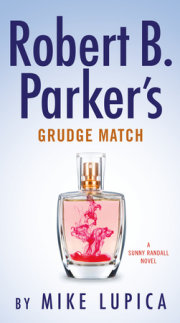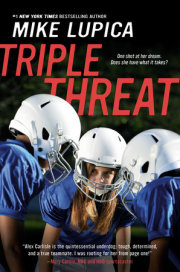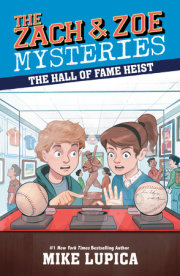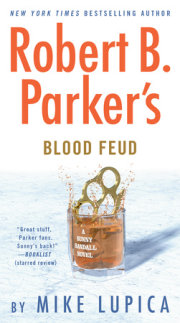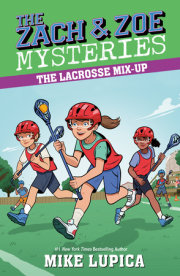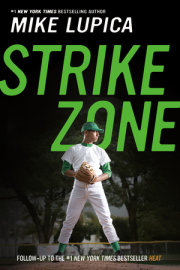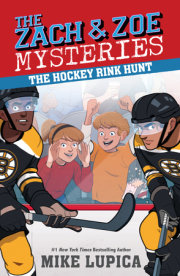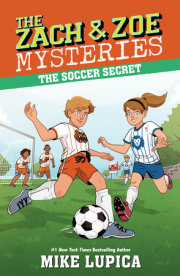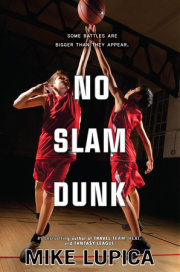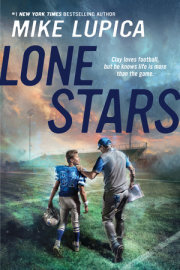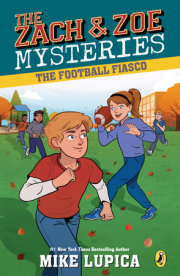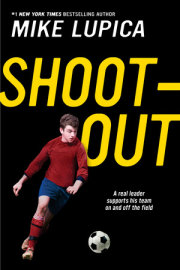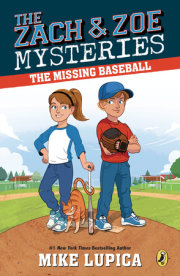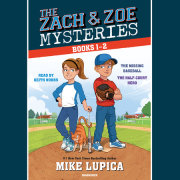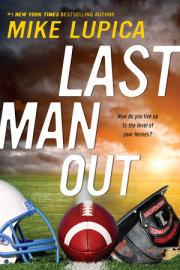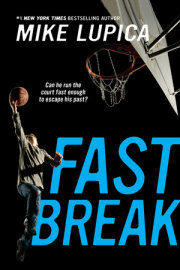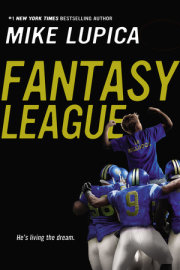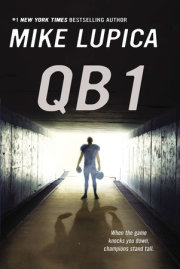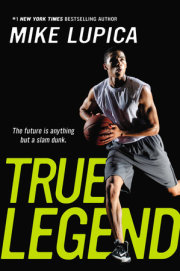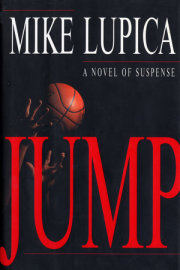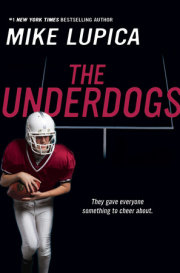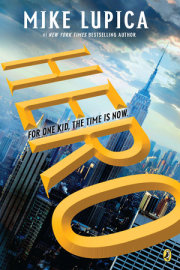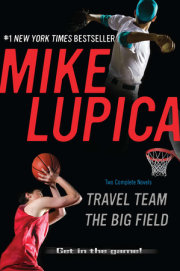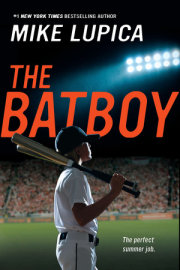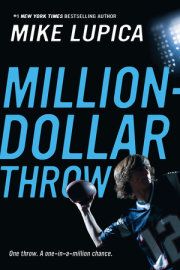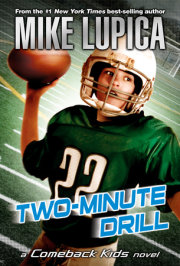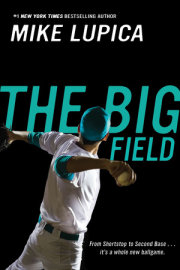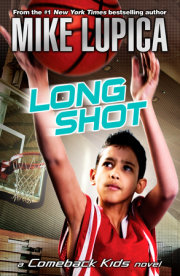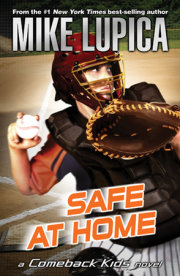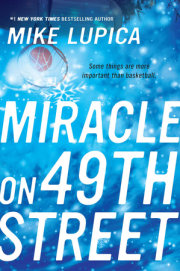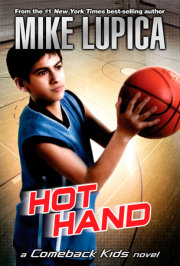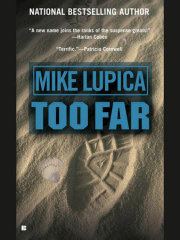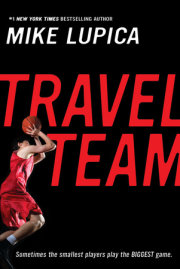Chapter oneMrs. Cora walked slowly up River Avenue in the summer heat, secure within the boundaries of her world. The great ballpark, Yankee Stadium, was on her right. The blue subway tracks were above her, the tracks colliding up there with the roar of the train as it pulled into the station across the street from the Stadium, at 161st Street and River.The two constants in my life, Mrs. Cora thought: baseball and the thump thump thump of another train, like my own personal rap music.
She had her green purse over her arm, the one that was supposed to look more expensive than it really was, the one the boys upstairs had bought for her birthday. Inside the purse, in the bank envelope, was the one hundred dollars—Quik Cash they called it—she had just gotten from Bank of New York ATM machine. Her food money. But she was suddenly too tired to go back to the Imperial Market. Mrs. C, as the kids in her building called her, was preparing for what could feel like the toughest part of her whole day, the walk back up the hill to 825 Gerard from the Stadium.
Now she moved past all the stores selling Yankee merchandise—Stan’s Sports World, Stan the Man’s Kids and Ladies, Stan the Man’s Baseball World—wondering as she did sometimes if there was some famous Yankee who had been named Stan.
He hit her from behind.
She was in front of Stan’s Bar and Restaurant, suddenly falling to her right, onto the sidewalk in front of the window as she felt the green purse being pulled from her arm, as if whoever it was didn’t care if he took Mrs. Cora’s arm with it.
Mrs. Cora hit the ground hard, rolled on her side, feeling dizzy, but turning herself to watch this . . . what? This boy not much bigger than some of the boys at 825 Gerard? Watched him sprint down River Avenue as if faster than the train that was right over her head this very minute, pulling into the elevated Yankee Stadium stop.
Mrs. Cora tried to make herself heard over the roar of the 4 train.
“Stop,” Mrs. Cora said.
Then, as loud as she could manage: “Stop thief!”
There were people reaching down to help her now, neighborhood people she was sure, voices asking if she was all right, if anything was broken.
All Mrs. Cora could do was point toward 161st Street.
“My food money,” she said, her voice cracking.
Then a man’s voice above her was yelling, “Police!”
Mrs. Cora looked past the crowd starting to form around her, saw a policeman come down the steps from the subway platform, saw him look right at her, and then the flash of the boy making a left around what she knew was the far outfield part of the Stadium.
The policeman started running, too.
The thief’s name was Ramon.
He was not the smartest sixteen-year-old in the South Bronx. Not even close to being the smartest, mostly because he had always treated school like some sort of hobby. He was not the laziest, either, this he knew, because there were boys his age who spent much more time on the streetcorner and sitting on the stoop than he did. But he was lazy enough, and hated the idea of work even more than he hated the idea of school, which is why he preferred to occasionally get his spending money stealing purses and handbags like the Hulk-green one he had in his hand right now.
As far as Ramon could tell at this point in his life, the only real job skill he had was this:He was fast.
He had been a young soccer star of the neighborhood in his early teens, just across the way on the fields of Joseph Yancy park, those fields a blur to him right now as he ran on the sidewalk at the back end of Yankee Stadium, on his way to the cobblestones of Ruppert Place, which ran down toward home plate.
“Stop! Police!” Ramon heard from behind him.
He looked around, saw the fat cop starting to chase him, wobbling like a car with a flat tire.
Fat chance, Ramon thought.
Ramon’s plan was simple: He would cut across Ruppert Place and run down the hill to Macombs Dam Park, across the basketball courts there, then across the green expanse of outfield that the two ballfields shared there. Then he would hop the fence at the far end of Macombs Dam Park and run underneath the overpass for the exit from the Deegan Expressway, one of the Stadium exits.
And then Ramon would be gone, working his way back toward the neighborhoods to the north, with all their signs pointing toward the George Washington Bridge, finding a quiet place to count his profits and decide which girl he would spend them on tonight.“Stop . . . I mean it!” the fat cop yelled.
Ramon looked over his shoulder, saw that the cop was already falling behind, trying to chase and yell and speak into the walkie-talkie he had in his right hand all at once. It made Ramon want to laugh his head off, even as he ran. No cop had ever caught him and no cop ever would, unless they had begun recruiting Olympic sprinters for the New York Police Department. He imagined himself as a sprinter now, felt his arms and legs pumping, thought of the old Cuban sprinter his father used to tell him about.Juan something?
No, no.
Juantarena.
Alberto Juantarena.
His father said it was like watching a god run. And his father, the old fool, wasn’t even Cuban, he was Dominican. The only Dominican who wanted to talk about track stars instead of baseball.
Whatever.
Ramon ran now, across the green grass of Macombs Dam Park, where boys played catch in the July morning, ran toward the fence underneath the overpass.
It wasn’t even noon yet, Ramon thought, and I’ve already earned a whole day’s pay.He felt the sharp pain in the back of his head in that moment, like a rock hitting him back there.
Then Ramon went down like somebody had tackled him from behind.
What the . . . ?
Ramon, who wasn’t much of a thinker, tried to think what had just happened to him, but his head hurt too much.
Then he went out.
When the thief opened his eyes, his hands were already cuffed in front of him.The fat policeman stood with a skinny boy, a tall, skinny boy with long arms and long fingers attached to them, wearing a Yankee T-shirt, a baseball glove under his arm.
“What’s your name, kid?”
The one on the ground said, “Ramon,” thinking the policeman was talking to him.
The cop looked down, as if he’d forgotten Ramon was there. “Wasn’t talking to you.”
“Michael,” the skinny boy said. “Michael Arroyo.”
“And you’re telling me you got him with this from home plate?”
The cop held up a baseball that looked older than the old Stadium that rose behind them to the sky.
“Got lucky, I guess,” Michael said.
The cop smiled, rolling the ball around in his hand.
“You lefty or righty?”
Now Michael smiled and held up his left hand, like he was a boy with the right answer in class.
“Home plate to dead center?” the cop said.
Michael nodded, like now the cop had come up with the right answer.
“You got some arm, kid,” the cop said.
“That’s what they tell me,” Michael said.
Copyright © 2006 by Mike Lupica. All rights reserved. No part of this excerpt may be reproduced or reprinted without permission in writing from the publisher.

